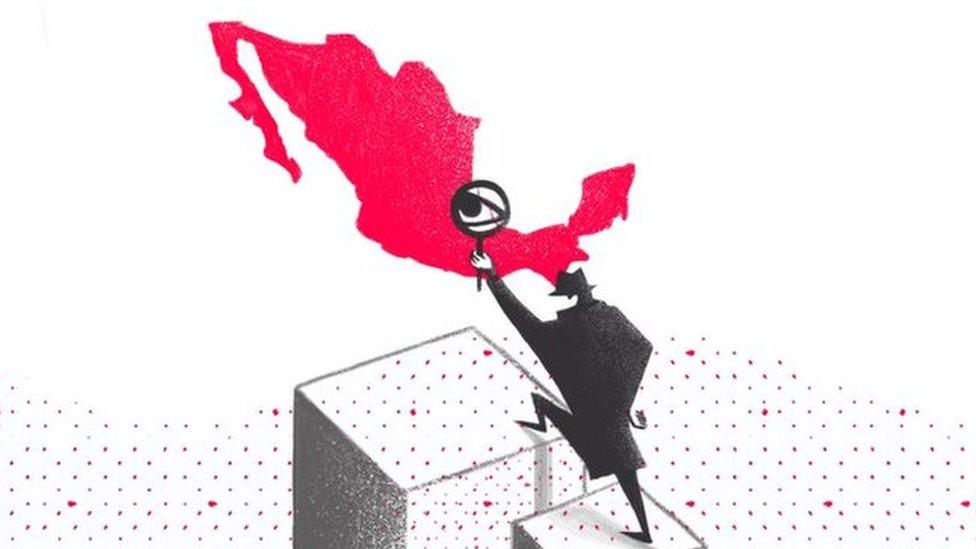López Obrador: Five things in president-elect's inbox
- Published
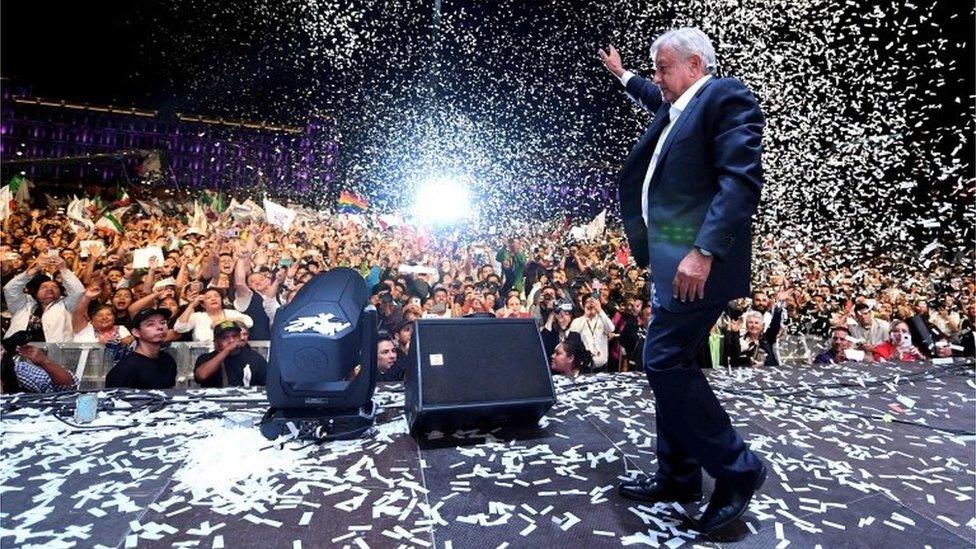
Andrés Manuel López Obrador won the presidential election with more than 50% of the vote
Left-wing candidate Andrés Manuel López Obrador has won the Mexican presidential election after campaigning on a promise of change.
Casting his ballot, Mr López Obrador, or Amlo for short, said there would be a "peaceful transformation" of Mexico.
In his victory speech, he said that he wanted to "go down in history as a good president".
We look at the five most pressing issues facing the man who will take over as president on 1 December.
1. Corruption
Corruption is an overwhelming and widespread problem in Mexico. According to a 2017 report by anti-corruption pressure group Transparency International, 51% of Mexicans surveyed said they had had to pay a bribe to access public services,, external the highest rate in Latin America.
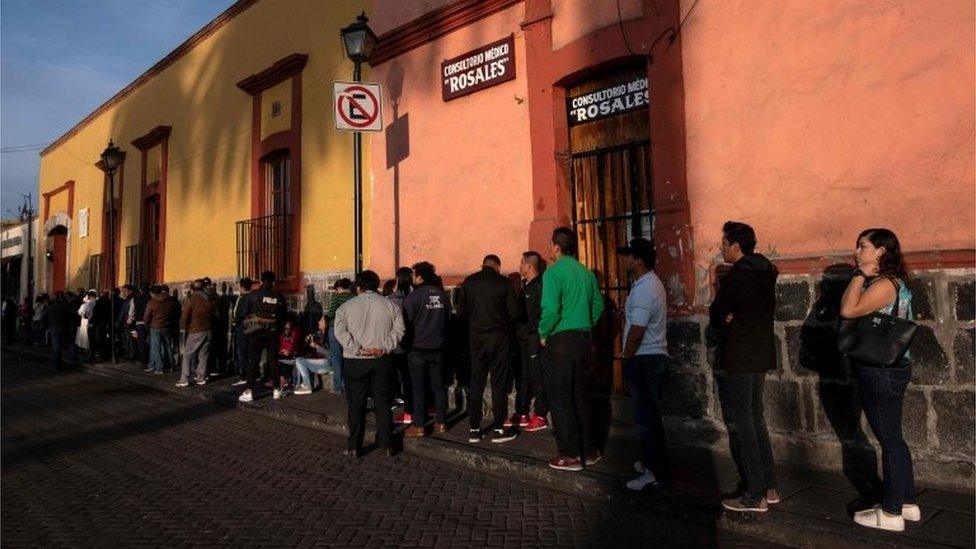
Many voters said they were tired of corruption and that they wanted a change
At least 14 former or current governors are currently under investigation for corruption.
While corruption at the highest levels of government is not a recent development in Mexico, revelations that the most vulnerable were defrauded by those in power did stir levels of public anger not seen before.
In Veracruz, the administration of then-governor Javier Duarte was accused of purchasing fake medicines, leading to children with cancer being given water instead of chemotherapy.
Outgoing President Enrique Peña Nieto himself did not escape criticism after his wife bought a house worth $7m (£5.3m) from a government contractor.
Mr López Obrador tapped into public anger about corruption, promising to eradicate it, a promise he repeated in his victory speech.
"Corruption is not a cultural phenomenon, it's the result of a regime in decline," he said. He also said that no-one who was guilty of corruption would be spared, "even brothers-in-arms".
One of the concrete proposals he has put forward is to revise oil contracts awarded by the current administration to companies to check them for signs of corruption.
Any contracts showing signs of anomalies will be addressed by Congress, he has said.
2. Security and impunity
As well as corruption, Amlo mentioned impunity as one of his twin priorities. Levels of violence reached a record high in Mexico in 2017, with more than 25,000 people killed.
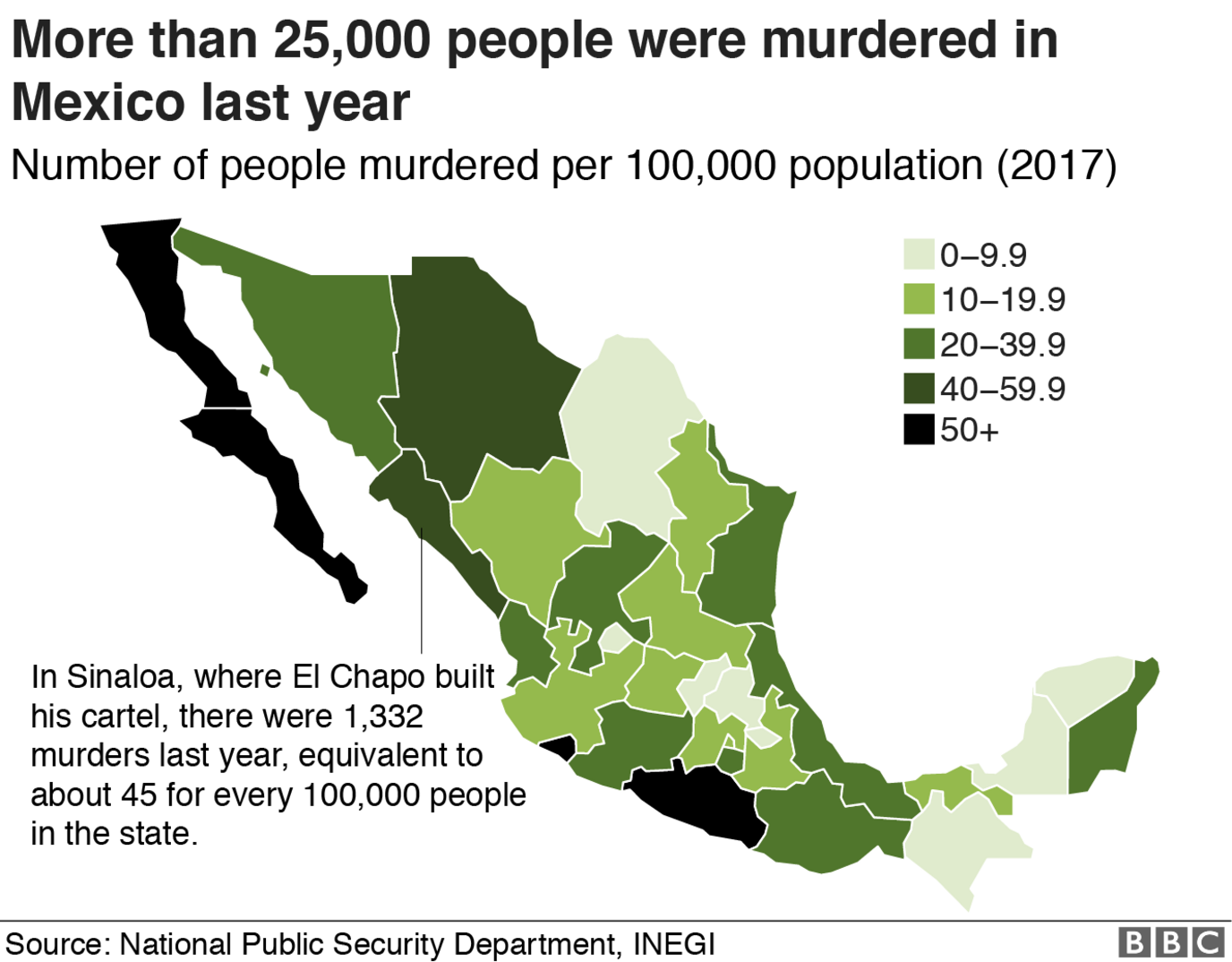
But what many Mexicans voters complained about more than the number of killings was the fact that so many crimes go unpunished.
The election campaign also saw an unprecedented number of politicians being killed, more than 130 since the registration process started in September, 48 of which were running for office in this election.
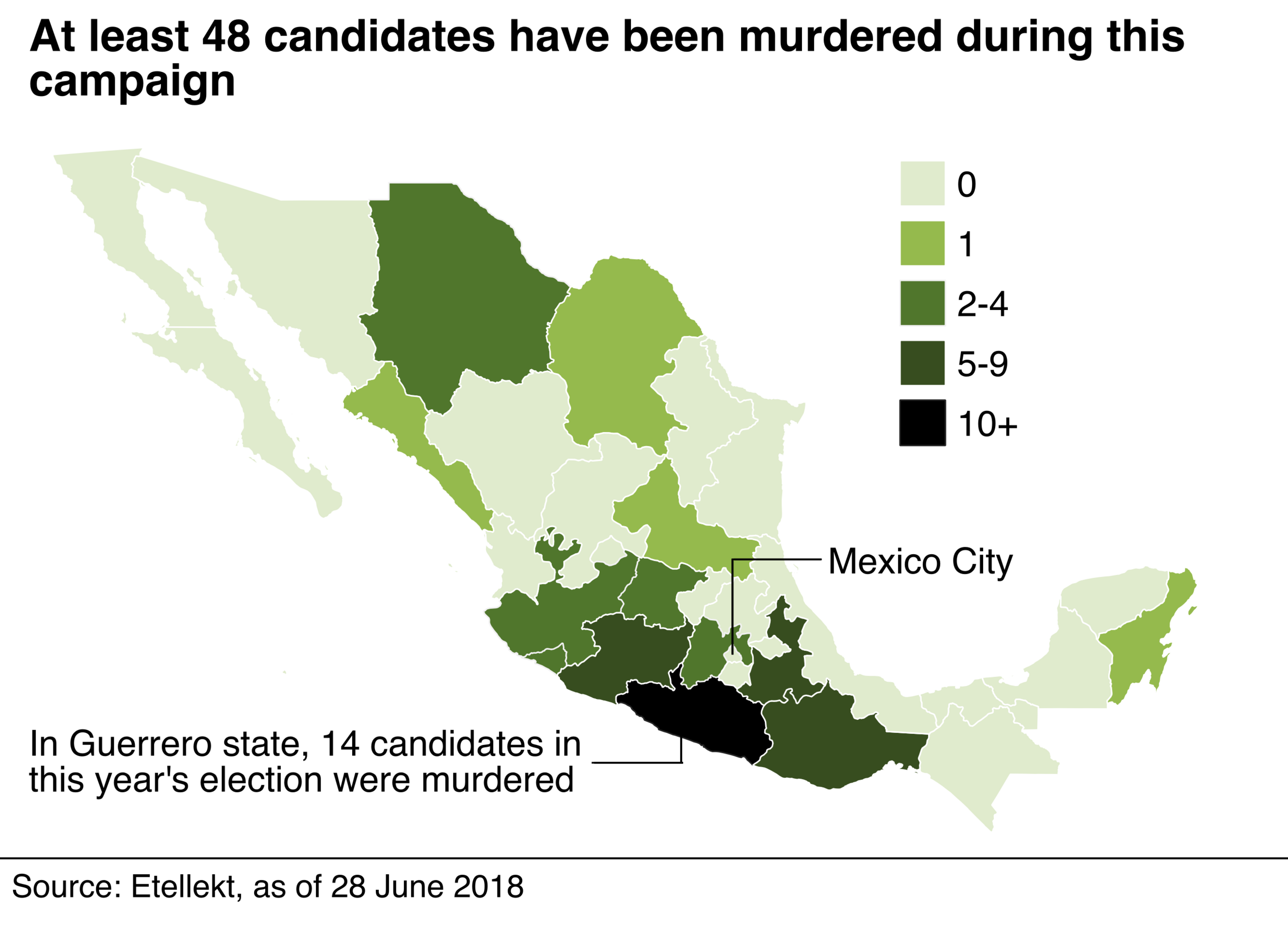
Many were running in areas where drug gangs wield a lot of influence leading residents to ask if those running for office could be taken out how they could be protected.
In his victory speech, Mr López Obrador blamed corruption for the violence in Mexico. However, except for his plan to meet daily at 06:00 with his public security cabinet, which he said would be put under a "unified command", he has given little detail about how he aims to tackle the endemic violence in Mexico.
His predecessors in office declared a "war on drugs" which drove the number of murders even higher as drug cartels splintered and fought for control of disputed areas.
Under President Enrique Peña Nieto, high-profile cartel bosses were arrested but the vacuum left again seemed to inflame turf wars.
Amlo has said he will take a softer approach, saying that under his administration there would be "abrazos, no balazos" (hugs, not shoot-outs).
However, when he mooted an amnesty for those involved in the drugs trade, it was met by widespread outrage and aides later said it would be restricted to farmers growing illicit crops.
3. Poverty and inequality
Amlo and his advisers have argued that one of the main factors behind Mexico's high levels of violence is extreme poverty.
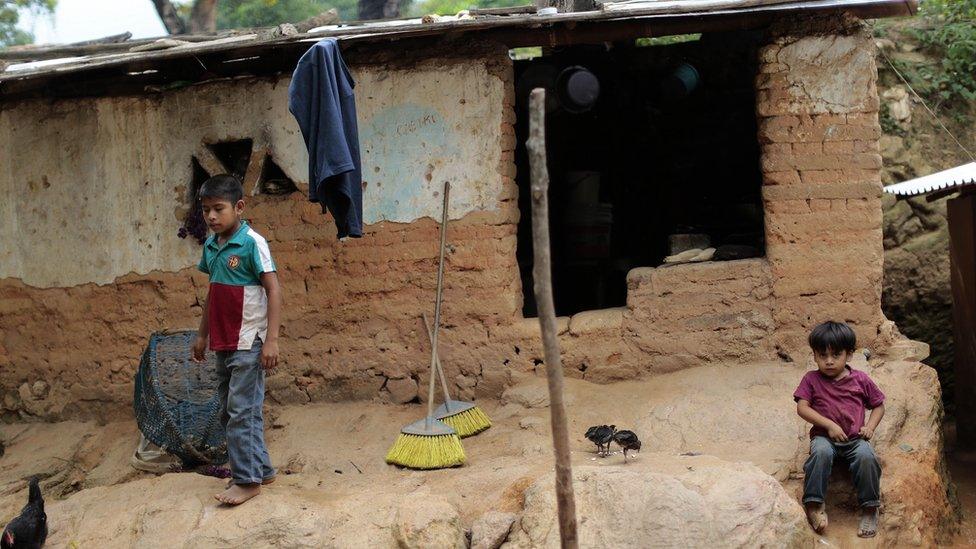
Amlo says that the best, most humane way to confront violence comes from combating poverty
He argues that unless young people have choices, they will be lured into illegality by criminal gangs. In order to prevent them from joining gangs, he has proposed offering scholarships and jobs to young people.
Critics, however, have questioned how successful such a scheme could be when drug gangs offer fast money.
He has also said he will help the elderly by doubling their pensions "from my first day in office".
And in his victory speech, he also said he would work for "all Mexicans" giving special emphasis to helping indigenous people, who are among the poorest in Mexico.
4. Improving US relations
Mr López Obrador was scathing in his criticism of US President Donald Trump during his campaign, something that analysts say won him extra votes from Mexicans angry at the insults Mr Trump had aimed at Mexicans.
A look back at some of the things Donald Trump has said about Mexicans
He said he would make Mr Trump "see reason" and "put him in his place". But now that he has been elected, Mr López Obrador has struck a much more conciliatory note, saying he would pursue a relationship of friendship and cooperation" with the US.
Not only are the US a key trading partner for Mexico, US law enforcement agencies also cooperate closely with Mexican forces combating crime and drugs trafficking.
And while President Trump has slammed Mexico for allegedly not doing enough to stop Central American migrants from crossing over to the US, the two countries have been working together.
Along with Canada, they are also in the - currently deadlocked - talks on renegotiating the North American Free Trade Agreement (Nafta).
A tweet by President Trump congratulating Mr López Obrador suggests that former is also keen to start on a friendly footing after months of acrimony.
Allow X content?
This article contains content provided by X. We ask for your permission before anything is loaded, as they may be using cookies and other technologies. You may want to read X’s cookie policy, external and privacy policy, external before accepting. To view this content choose ‘accept and continue’.
With a massive 81% of Mexican exports going to the United States in 2017, the two countries have a vested interest in making their relationship work.
5. Kickstarting the economy
Mexico's economy is the second-largest in Latin America but it has been a lot more sluggish than Mexican and investors had hoped for, and they are looking to Amlo to change that.
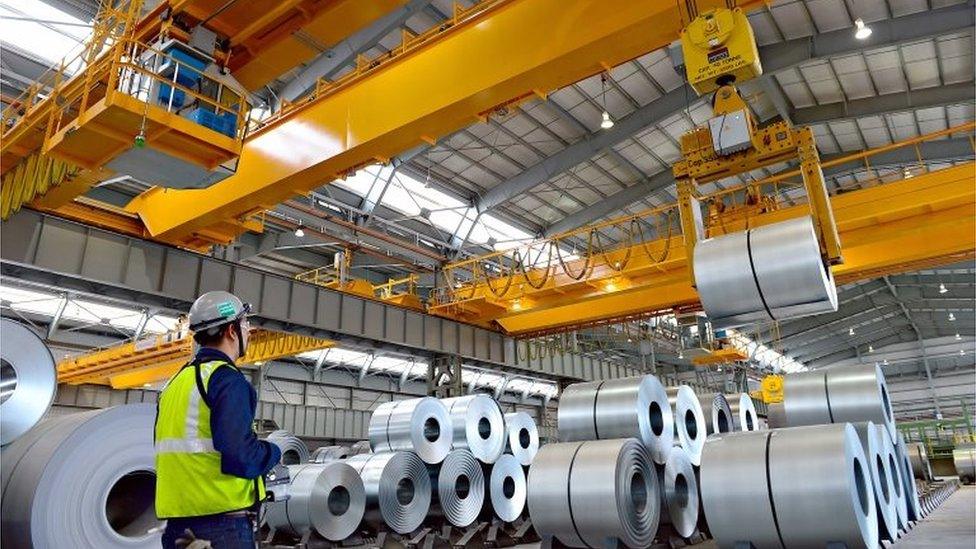
Mexicans had hoped for more growth than the administration of Enrique Peña Nieto could deliver
In his victory speech, Mr López Obrador said his government would be fiscally disciplined and would not raise taxes.
But critics have wondered from where he will source the money for the social programmes he has promised to deliver.
Amlo has said that a crackdown on corruption will mean that his administration will have more money at its disposal as it will stop millions of pesos being embezzled.
- Published29 November 2018
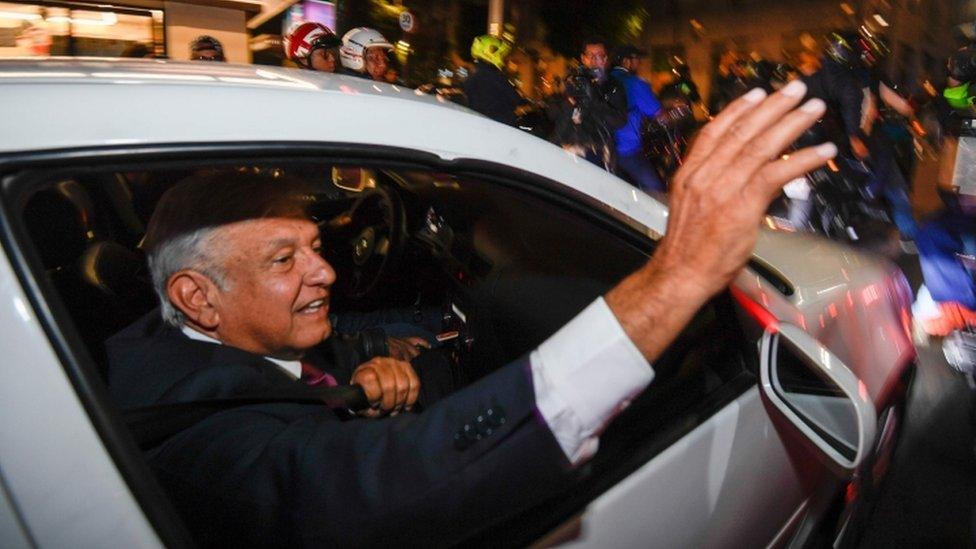
- Published1 July 2018
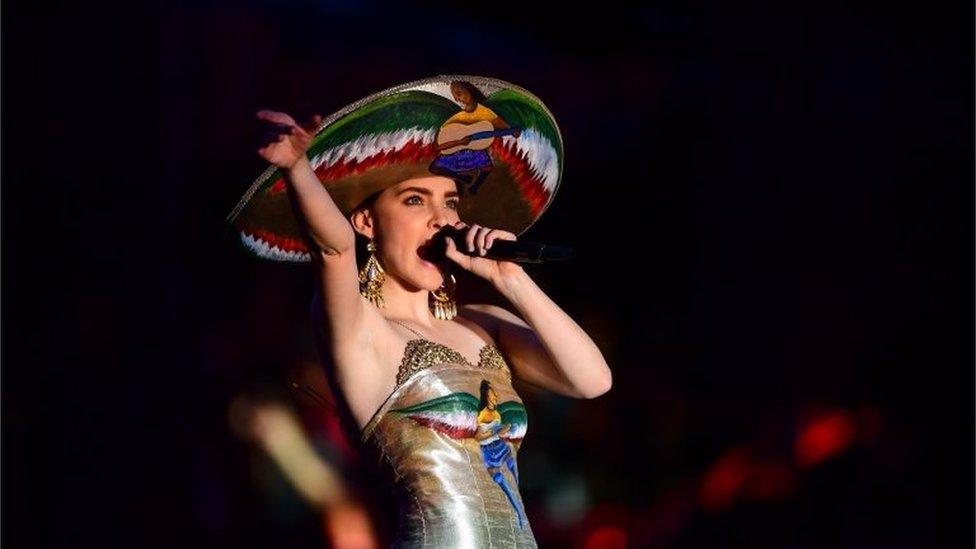
- Published30 June 2018
